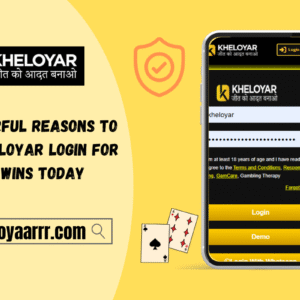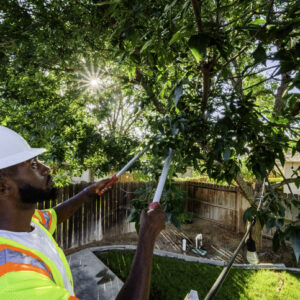For many NRIs planning to get married abroad, obtaining a bachelorhood certificate India becomes a crucial legal requirement. This document serves as official proof that an individual has never been married in India, ensuring compliance with the foreign country’s marriage regulations. Yet, the process can seem complicated for those living overseas. This guide simplifies every step, helping you understand what it is, why you need it, and how to get it efficiently without unnecessary stress.

What Is a Bachelorhood Certificate and Why It Matters
A bachelorhood certificate, also known as a single status affidavit or unmarried certificate, is a legal declaration confirming that you are single at the time of application. Many countries—especially the US, UK, Canada, Australia, and those in the European Union—require this certificate before registering a marriage involving an Indian citizen.
For NRIs, this document helps eliminate legal complications during the marriage registration process abroad. It acts as solid proof of your single status, verified and authenticated by Indian authorities and later attested by the Ministry of External Affairs or the Indian Embassy.
Without this document, foreign authorities might reject your marriage application or delay its approval. Therefore, obtaining the certificate before initiating your marriage registration abroad is not just a formality but a necessity.
Who Can Apply for a Bachelorhood Certificate in India
Any Indian citizen or NRI who has never been married can apply for this certificate. Typically, this includes:
- Indian citizens planning to marry a foreign national
- NRIs required to submit proof of single status abroad
- Individuals marrying under foreign jurisdiction where single status verification is mandatory
If you were previously married but now divorced, you must instead present a divorce decree. The bachelorhood certificate applies only to individuals who have never been legally married.
Documents Required to Apply
When applying for a bachelorhood certificate in India, applicants must provide the following documents:
- Valid passport copy (front and back)
- Aadhaar Card or Indian address proof
- Birth certificate or school leaving certificate (for age verification)
- Self-declaration affidavit stating single status
- Passport-size photographs
- Proof of residence (Indian or foreign address if you are an NRI)
- Any additional identity proof requested by local authorities
Having these documents ready before application ensures smoother and faster processing.
Step-by-Step Process for Obtaining a Bachelorhood Certificate
1. Prepare the Affidavit
The process starts with drafting an affidavit stating that you are unmarried. This affidavit should include your name, date of birth, address, nationality, and a declaration that you have never been married.
2. Get It Notarized or Attested by Local Authorities
Once prepared, the affidavit must be notarized by a Notary Public or attested by an Executive Magistrate, depending on your state’s rules. This step validates your declaration legally.
3. Submit to the District Court or SDM Office
After notarization, the document is submitted to the District Court or Sub-Divisional Magistrate (SDM) office. The authorities verify your identity, supporting documents, and affidavit content.
4. Verification and Processing
Officials conduct background checks, and in some cases, local police verification is also done to confirm your single status.
5. Obtain the Certificate
Once verification is complete, the bachelorhood certificate is issued on official letterhead or stamped paper, carrying the authority’s seal and signature.
6. Attestation and Apostille (For NRIs)
For international use, the certificate must be attested by the Home Department, Ministry of External Affairs (MEA), and then the respective foreign embassy or consulate. This step authenticates the certificate for global recognition.
Challenges NRIs Face During the Process
While the process looks straightforward, NRIs often face practical challenges:
- Distance and accessibility: Managing documentation from abroad can be time-consuming.
- Verification delays: Local verification and court appointments may take longer for applicants living overseas.
- Document discrepancies: Mismatched names, old addresses, or missing proofs can cause unnecessary rejections.
- Legalization confusion: Understanding how and where to get the document attested internationally can be confusing.
To overcome these, NRIs often rely on professional legal facilitators or agencies experienced in Indian documentation procedures.
How Professional Assistance Simplifies the Process
Handling the entire procedure independently from abroad can be daunting. Professional service providers based in India can streamline this for you. They assist with:
- Drafting and notarizing your affidavit correctly
- Managing court or SDM submissions
- Coordinating local and police verification
- Handling Home Department and MEA attestation
- Managing embassy legalization based on your destination country
By working with experienced professionals, NRIs save time, avoid procedural errors, and ensure the certificate’s authenticity is recognized globally.
Common Myths About the Bachelorhood Certificate
Myth 1: It’s only required for foreign marriages.
Fact: Many Indian embassies and consulates also request this document for other purposes, such as visa or permanent residency applications.
Myth 2: You can get it instantly.
Fact: The process often takes a few weeks due to verification and attestation steps.
Myth 3: NRIs can’t apply without visiting India.
Fact: With power of attorney or authorized representation, it’s possible to apply remotely.
Understanding these nuances ensures a smooth process without false expectations.
Legal Validity and International Recognition
A properly issued and attested bachelorhood certificate is legally valid across countries that recognize the Apostille Convention. However, some non-Apostille countries require additional embassy legalization.
It’s essential to check the specific requirements of the country where you intend to use the document. A mistake in the attestation chain could lead to rejection, requiring you to repeat the entire process.
Final Thoughts
Obtaining a bachelorhood certificate in India is a crucial step for NRIs planning to marry abroad. While the process involves several legal and bureaucratic layers, having the right guidance simplifies it significantly. Always ensure accuracy in your affidavit, maintain updated identification documents, and follow proper attestation procedures to avoid unnecessary delays.
If you’re an NRI seeking a smooth, legally compliant way to obtain this document, India For NRI offers professional, end-to-end support in legal, property, and financial services. Our team ensures your paperwork is completed seamlessly, with full authenticity and embassy acceptance.





